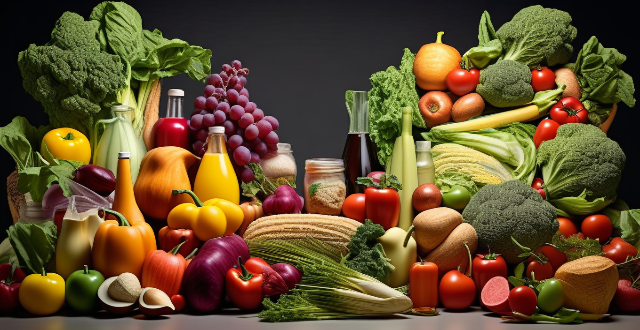Importing food offers economic benefits such as market diversification, cost efficiency, job creation, improved trade balance, and competition-driven innovation. Socially, it fosters cultural exchange, enhances nutritional variety, improves food security, and expands consumer choice. Environmentally, it aids in resource conservation, reduces environmental impact, and helps preserve biodiversity. Importing food ensures growth, development, food security, and cultural promotion while emphasizing the need for a balanced approach to support local production and sustainable agriculture.

Benefits of Importing Food
Importing food has become an integral part of the global economy, with countries importing and exporting a wide range of agricultural products. There are several benefits to importing food, which can be categorized into economic, social, and environmental aspects. Let's delve into these benefits in detail.
Economic Benefits
1. Diversification of Market Options: Importing food allows consumers to access a wider variety of products that may not be available locally. This diversification can lead to increased consumer satisfaction and potentially higher demand for unique or exotic foods.
2. Cost Efficiency: In some cases, it may be more cost-effective to import certain foods than to produce them domestically. This is particularly true for countries with limited arable land or harsh climates that make local production challenging.
3. Job Creation: The process of importing food involves various stages such as transportation, warehousing, distribution, and retail. Each of these stages requires manpower, leading to job creation within the country.
4. Trade Balance: By importing food, countries can balance their trade deficits by exporting other goods or services. This helps maintain a healthy trade relationship between nations.
5. Competition and Innovation: Imported foods introduce competition in the domestic market, encouraging local producers to improve their products and processes. This can lead to innovation and better quality products for consumers.
Social Benefits
1. Cultural Exchange: Imported foods often bring with them elements of the culture they originate from. This cultural exchange enriches the diversity of the host country's cuisine and promotes understanding between different cultures.
2. Nutritional Variety: Imported foods can provide essential nutrients that may be lacking in the local diet. For example, imported fruits like bananas or avocados can supplement the nutritional needs of people living in regions where these fruits do not grow naturally.
3. Food Security: During times of crop failure or natural disasters, importing food becomes crucial for ensuring food security within a country. It allows for the continuation of food supply even when local production is affected.
4. Consumer Choice: Imported foods offer consumers greater choice, allowing them to select products based on personal preferences, dietary restrictions, or ethical considerations (such as organic or fair-trade products).
Environmental Benefits
1. Resource Conservation: If a country lacks the necessary resources to produce certain crops efficiently, importing those crops can help conserve local resources like water and soil fertility.
2. Reduced Environmental Impact: Some countries have more advanced agricultural practices that result in reduced environmental impact compared to traditional methods used elsewhere. By importing food produced using these practices, countries can reduce their overall environmental footprint associated with agriculture.
3. Biodiversity Preservation: In some cases, importing food can help preserve local biodiversity by reducing pressure on native ecosystems. For instance, if a region focuses on importing grains rather than converting native grasslands into farmland, it helps maintain the natural habitat and biodiversity of the area.
In conclusion, importing food offers numerous benefits across economic, social, and environmental dimensions. It provides opportunities for growth and development while ensuring food security and promoting cultural exchange. However, it is important to strike a balance between importing food and supporting local production to maintain sustainable agricultural practices and protect domestic economies.